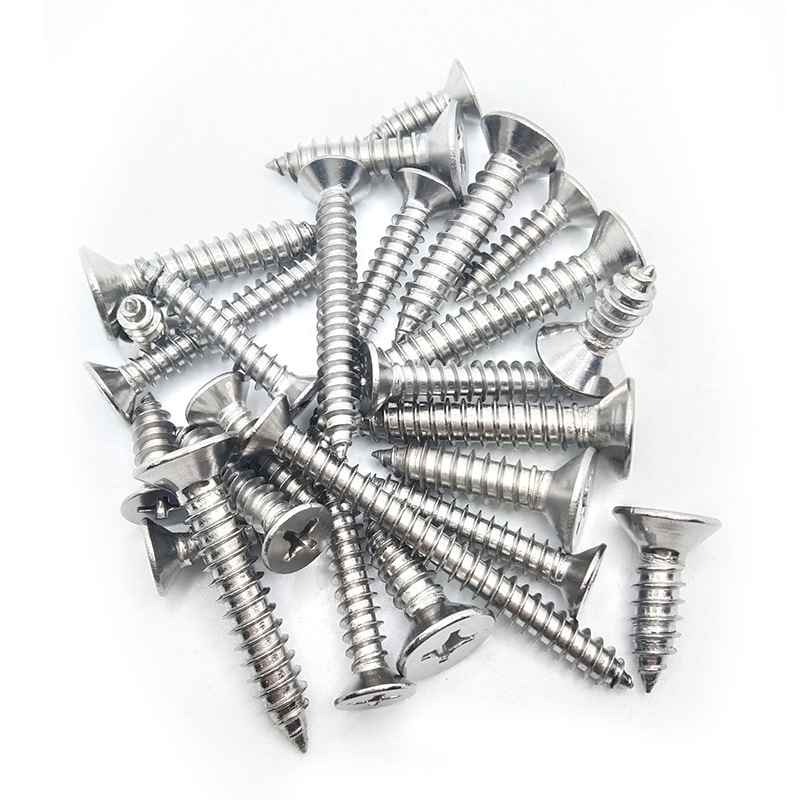

choosing the right self-tapping screws for effective gutter
Oct . 30, 2024 13:25 Back to list
choosing the right self-tapping screws for effective gutter
Choosing the Right Self-Tapping Screws for Effective Gutter Installation
When it comes to gutter installation, every component plays a crucial role, and one often-overlooked aspect is the type of screws used. Self-tapping screws are a popular choice for their ease of use and efficiency, but selecting the right ones for your gutters can make all the difference. In this article, we’ll explore how to choose the right self-tapping screws for effective gutter installation, enhancing both durability and performance.
Understanding Self-Tapping Screws
Self-tapping screws are designed to create their own hole when driven into materials, eliminating the need for pre-drilling in most cases. This feature makes them particularly convenient for gutter installations, where speed and precision are paramount. However, not all self-tapping screws are created equal; their design, material, and coating can significantly impact their performance in an outdoor environment.
Material Matters
The first consideration when choosing self-tapping screws for gutters is the material. Stainless steel and galvanized steel are two common options.
1. Stainless Steel These screws offer excellent resistance to corrosion, making them ideal for areas with high humidity or heavy rainfall. Stainless steel screws are perfect for coastal regions where saltwater can accelerate corrosion.
2. Galvanized Steel Galvanized screws are coated with a layer of zinc, which provides a degree of protection against rust and corrosion. While they may not be as robust as stainless steel in harsh environments, they are often more cost-effective and suitable for residential projects.
Coating and Corrosion Resistance
choosing the right self-tapping screws for effective gutter

In addition to the material, the coating on the screws plays an essential role in their longevity. Look for screws that feature additional protective coatings, such as epoxy or powder coating. These coatings enhance corrosion resistance and can match the color of your gutters, providing a more aesthetically pleasing finish.
Thread Design
The thread design of the self-tapping screw is another critical aspect to consider. For gutter installations, screws with coarse threads are ideal as they provide a better grip in softer materials, like aluminum or vinyl gutters. Additionally, a sharper point can help the screw penetrate materials more effectively, reducing the risk of deformation.
Screw Length and Size
Selecting the correct length and size of the screw is vital to ensure a secure fit. Typically, gutters require screws that are at least one inch long to ensure proper engagement with the underlying structure. The diameter of the screw should correspond with the thickness of the gutter material to prevent stripping and ensure stability.
Installation Tips
When installing gutters, ensure that you drive the screws straight and with the appropriate torque. Over-tightening can lead to deformation of the gutter material, while under-tightening can cause leaks or sagging. Use a drill with a clutch setting to help control torque and avoid potential damage.
Conclusion
Choosing the right self-tapping screws for gutter installation is a vital step in ensuring the longevity and effectiveness of your gutters. By considering the material, coating, thread design, and size of the screws, you can enhance your installation's durability and resistance to the elements. With the right screws in hand, your gutters will not only perform their essential function but will also stand the test of time, providing reliable protection to your home. Proper planning and the right materials will ultimately save you time, effort, and money in the long run.
Latest news
-
High-Strength Hot Dip Galvanized Bolts - Hebei Longze | Corrosion Resistance, Customization
NewsJul.30,2025
-
Hot Dip Galvanized Bolts-Hebei Longze|Corrosion Resistance&High Strength
NewsJul.30,2025
-
High-Strength Hot-Dip Galvanized Bolts-Hebei Longze|Corrosion Resistance&High Strength
NewsJul.30,2025
-
Hot Dip Galvanized Bolts-Hebei Longze|Corrosion Resistance&High Strength
NewsJul.30,2025
-
Hot Dip Galvanized Bolts - Hebei Longze | Corrosion Resistance, High Strength
NewsJul.30,2025
-
High-Strength Hot Dip Galvanized Bolts-Hebei Longze|Corrosion Resistance, Grade 8.8
NewsJul.30,2025

